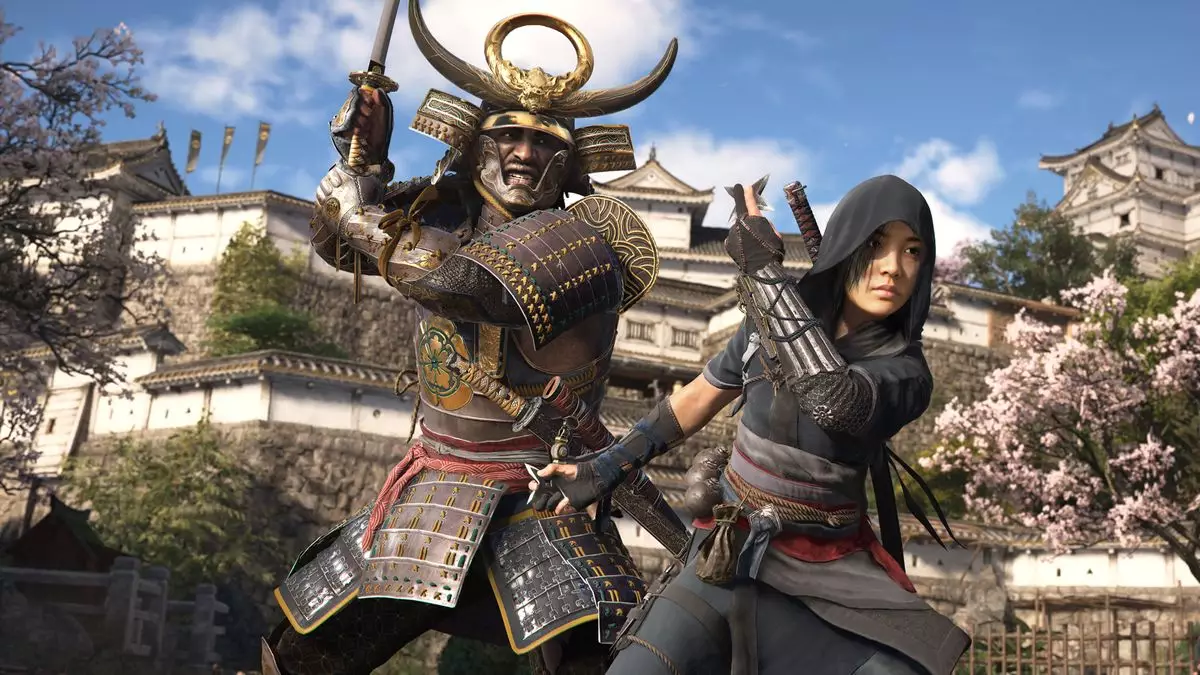The Assassin’s Creed series has long captivated audiences with its unique combination of historical exploration and modern-day conspiracy. However, over the years, the franchise has faced scrutiny regarding its storytelling balance. The intricate weave between historical narratives and present-day conflicts has become increasingly convoluted, leading to a disjointed experience for both players and critics alike. In its latest installment, Assassin’s Creed Shadows, Ubisoft seeks to recalibrate this equilibrium. The goal is to revive the nostalgia of early entries while simultaneously innovating to attract both veteran players and newcomers.
A pivotal moment in the franchise occurred at the climax of 2012’s Assassin’s Creed 3, wherein long-standing modern protagonist Desmond Miles met his demise. This significant plot point not only concluded his narrative arc, but it also sparked a crucial turning point for the series overall. Marc-Alexis Côté, the executive producer, acknowledged in a recent talk that this decision forced the creative team to confront a “creative crossroad.” The death of such a key character left a void, and the modern storyline struggled to maintain its vibrancy and relevance.
Côté’s insights are particularly illuminating. He pointed out that the series’ overemphasis on characters seeking Isu artifacts led to a predictability that dulled the narrative’s edge. The conflict morphing into a mere competition for powerful relics undermined the franchise’s foundational themes of historical exploration. Instead of fostering a rich tapestry of intrigue, the story veered towards a formulaic pursuit that lacked the depth originally celebrated by fans.
With the acknowledgment of a repetitive narrative structure and a disconnect for new players, Ubisoft’s mission with Assassin’s Creed Shadows is to realign its narrative focus by placing history at its core. The ambitions of the development team are clear; they aim not only to re-engage players with historical content but also to create a narrative that is cohesively interwoven with contemporary themes. This rebalancing act could be instrumental in refreshing the franchise’s approach and reviving its essence.
Côté outlined an enhanced modern-day storyline that seeks to illuminate rather than overshadow the historical aspects. By drawing poignant connections between past and present, players can expect a more intricate experience that foregrounds historical intrigues yet allows for relevant commentary on current societal issues. The promise to explore deeper themes—such as memory, identity, and personal autonomy—signals a shift toward a more thoughtful engagement with the material.
What makes Assassin’s Creed Shadows particularly compelling is its approach to contemporary themes. The franchise aims to delve into the complexity of how historical narratives shape individual and collective identities. By addressing the tension between freedom and control, the power of knowledge, and societal conformity, the narrative aspires to resonate deeply with players.
The idea of juxtaposing historical contexts against modern dilemmas enables players to reflect on their own circumstances and experiences. The historical lens may serve as a crucible through which players can understand the evolution of social constructs and the implications of power dynamics. Côté’s vision points to an avenue wherein gameplay becomes not just an adventure through time but a profound exploration of ideas that ripple into modern realities.
As Assassin’s Creed enters this new narrative phase, it’s poised on the brink of a transformative evolution. By grounding its storytelling once more in rich historical narratives while offering meaningful commentary on contemporary life, the series could regain much of its initial progressive spirit. The promises of Assassin’s Creed Shadows are ambitious, yet they hold the potential to captivate audiences anew. The challenge lies in the execution—navigating the dense lore while making it approachable for newcomers will be crucial.
In essence, Assassin’s Creed Shadows represents a crucial step in redefining what the franchise stands for. By prioritizing historical depth and offering substantial reflections on modern life, Ubisoft aspires to craft a narrative experience that resonates across generations. As the world eagerly anticipates this next chapter, the balance of history and modernity becomes not just a narrative device, but a philosophical exploration that could very well define the future of the Assassin’s Creed series.

